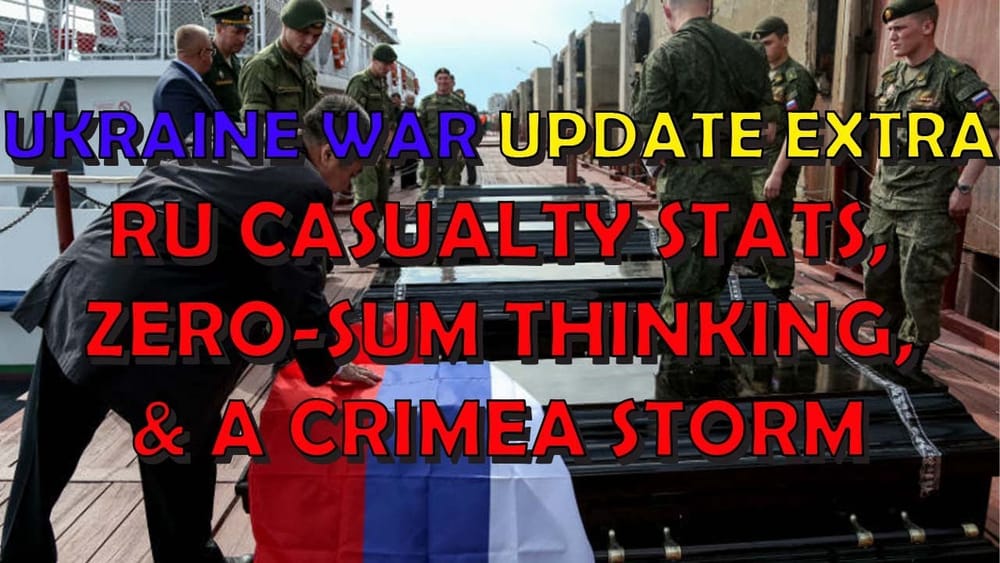Russian Casualty Stats & Zero-Sum Thinking
Table of Contents 📖
| Topic ID | Topic Title | Timestamp |
|---|
"If you're on a train or on a minibus and you've there's 10 of you on the minibus mobilized Russian soldiers you think two of us here two of us here are going to be dead within eight weeks"
Hello Team!
Jonathan introduces the topic of Russian casualty figures and how mobilized Russians have fared in Ukraine. He references a thread discussing the survival rates and statistics around mobilized troops.
Return to top⤴️
Russian casualty figures
- Analysis shows 1 in 5 mobilized Russians do not survive longer than 8 weeks in Ukraine, with the average lasting only 4.5 months
- Casualty rates have fluctuated, with peaks during major battles like Bakhmut. Mobilized troops under DNR/LNR command seem to fare worse
- The Kremlin has changed rules so mobilized soldiers serve until the end of the war with no rotation
- Certain regions like Buryatia have suffered disproportionate casualties, possibly due to systemic discrimination but also potentially due to varying rates of volunteering for economic reasons
Estimating total Russian losses
- Estimates of total Russian losses vary widely from the official 6,000 to Ukrainian claims of 50-60,000 killed
- BBC Russian Service estimates 25,000 confirmed deaths as of June 2023 based on open source data, but notes this is an undercount
- One analyst claimed taking 20% off Ukrainian estimates would be accurate but the methodology is unclear
- Large orders of death certificates and payments to families suggest planning for significant casualties
- Scale of losses compared to Soviet-Afghan war is staggering and will have major demographic impacts
Zero-sum thinking and political divides
- Chris references a paper on how zero-sum thinking, the idea that one group's gains come at the expense of others, underlies many political divides
- Arguments against aiding Ukraine often rely on zero-sum logic that the money would be better spent domestically
- The paper suggests zero-sum thinking is associated with populism, nativism and conspiracy theories
- Younger generations who grew up in periods of lower economic growth tend to exhibit more zero-sum thinking compared to older cohorts who experienced an aspirational "positive-sum" environment
Wrap up
Jonathan shows a video of a Russian propagandist, Johnny Miller, falsely claiming air defense missiles were firing during a Ukrainian attack on Sevastopol in Crimea. He notes the explosions heard were actually impacting missiles. Jonathan thanks the audience for watching and listening.
Return to top⤴️

